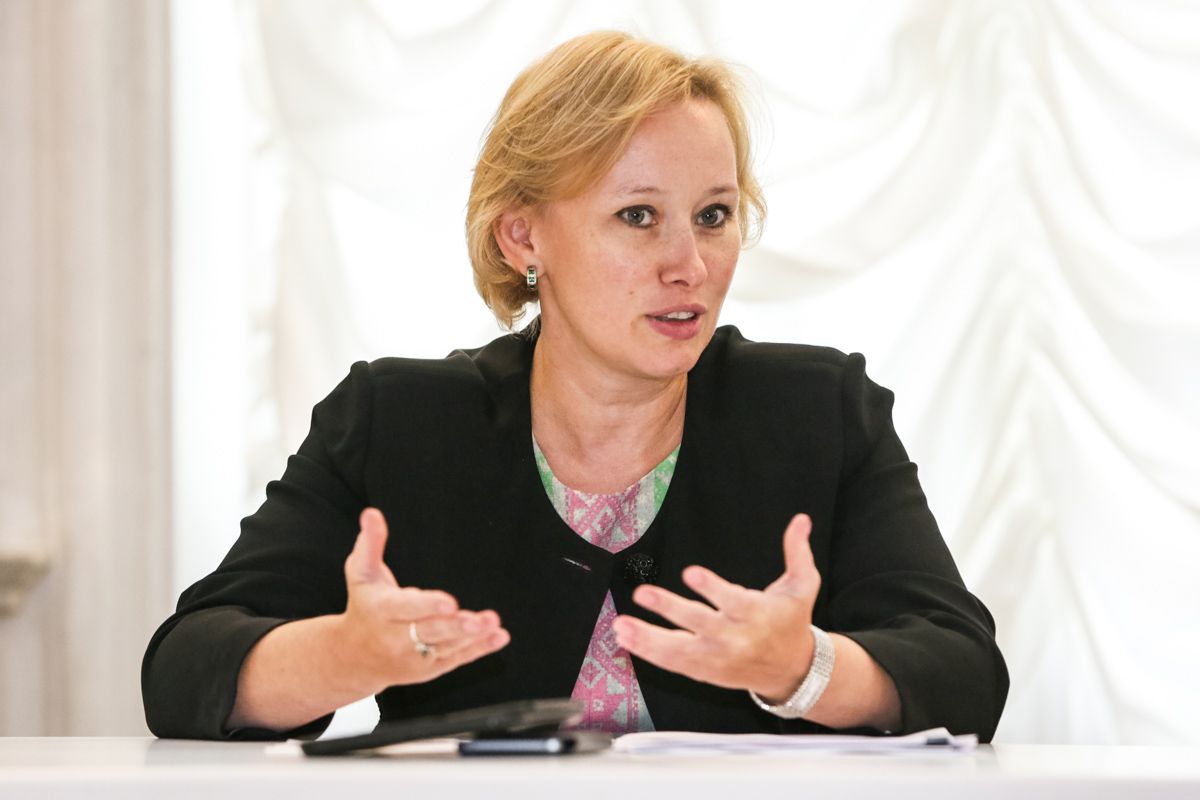The first meeting of the Council for Aspirantura and Clinical Residency Programmes was held at St Petersburg University

Leading experts in the field of obstetrics and gynecology became members of the SPbU Council for the "Obstetrics and Gynecology" Clinical Residency Programme and "Clinical Medicine"Aspirantura Programme.
The Council included representatives of the largest medical institutions, among them Alexander Baldin, Chief Medical Officer of St Petersburg State Budgetary Healthcare Institution "Centre for Family Planning and Reproduction"; Valentina Matsko, Chief Medical Officer of St Petersburg State Budgetary Healthcare Institution "Maternity Hospital No 1"; Alevtina Savicheva, Head of the Laboratory of Microbiology of the Research Institute of Obstetrics, Gynecology and Reproductology named after D.O. Ott and others.
Eduard Ailamazyan, Academician of the Russian Academy of Sciences, Honoured Scientist of the Russian Federation, Doctor of Science in Medicine, Professor, Director of the Research Institute of Obstetrics, Gynecology and Reproductology named after D.O. Ott became Chairman of the Council.
Ekaterina Babelyuk, Senior Vice Rector for Academic Affairs, Extracurricular Work and Methodological Support, took part in the first meeting of the Council. The prospects for programme development were discussed at the meeting. The Vice Rector noted that, after the Federal Law "On Lomonosov Moscow State University St Petersburg University" entered into force, SPbU, unlike other medical universities, started launching its educational programmes in accordance its own educational standard that gives additional opportunities in the process of implementation of advanced ideas in the field of medical education.
Such an approach to student training provides an opportunity not just to keep up with the times, but sometimes even to outstrip the most up-to-date educational programmes of other universities. Ekaterina Babelyuk particularly noted that the Council was formed by people whose experience, scientific and professional development can serve to develop the potential of medical education.
The potential of the University makes it possible for us to offer educational programmes that are in demand today.
Ekaterina Babelyuk, Senior Vice Rector for Academic Affairs, Extracurricular Work and Methodological Support
Chairman of the Council Eduard Ailamazyan, Professor, Director of the Research Institute of Obstetrics, Gynecology and Reproductology named after D.O. Ott proposed to focus on several goals including, in the first place, development of the selection system for students. Traditionally, the competition for applicants for the SPbU "Obstetrics and Gynecology" Aspirantura and Clinical Residency Programmes is rather high, and The Council members agree that the University has the opportunity to enrol the best applicants, both from the clinical work perspective and for future research purposes. In this regard, a proposal was made to discuss the viability of including an entrance examination in the specialty into the list of requirements for clinical residency admissions.
Another important development trend is individualisation of programmes. Eduard Ailamazyan noted: "Aspirantura applicants see their future work differently: some are planning to become educators, the others would like to work in a laboratory or dream about clinical practice. It will be appropriate to take into account these various preferences of our students in programme design, that making it possible for us to intelligently structure individual learning vectors."
For the University it is important to offer only world-class programmes, we need to develop and expand.
Ekaterina Babelyuk, Senior Vice Rector for Academic Affairs, Extracurricular Work and Methodological Support
Modern medicine requires new skills from physicians — it is necessary to be able to correlate costs and treatment efficacy, rationally organise both the hospital work and the tactics of treating a particular patient, that resulting in a proposal to introduce into the clinical residency curriculum such disciplines as pharmacoeconomics and medical management, thus giving SPbU graduates a head start in the labour market.
The Council members also discussed the possibility of developing SPbU programmes for international students which would be in demand on the international education market.
The workgroup formulated the priority areas and discussed the plan of activities; the work will be continued by correspondence.

